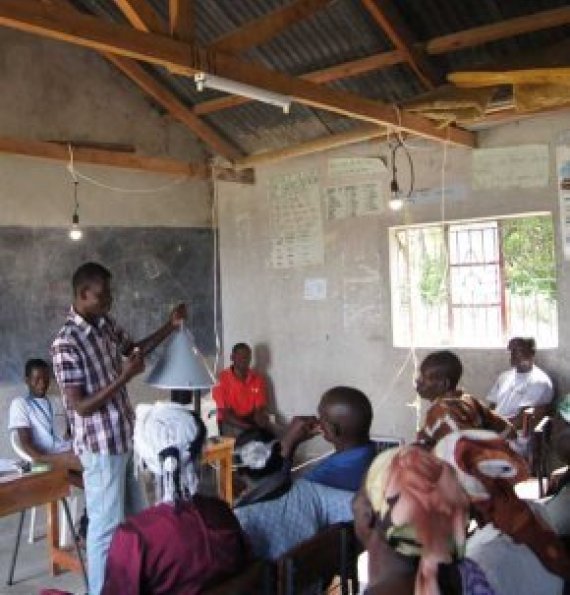If the goal of the Solarmal-project in Kenia would have been to ban out malaria by placing scent traps alone, it would probably not have worked, says Oria. It was vital for the researchers to get the local population involved in their plans. Not just to educate them, but also to get feedback from the local church leaders, women groups, NGO’s and public officials of the departments of Health and Energy. For example, the researchers changed the order of placing the traps in the households on the island. Which generated more support for the project from the locals.
Electricity
The recognition that the lack of power on the island was a problem proved to be crucial for the researchers. They not only provided the traps, which run on electricity, but also solar panels and chargers for mobile phones. The electricity had an immediate advance for the islanders, for they no longer needed to buy kerosine to power the lights in their homes. Moreover, kids could study longer in the evening and women could spend more time doing household chores. These instant benefits from electricity were more apparent than the expected benefits of the scent traps on malaria control, Oria observes.
Technicians
This raises the question if the local population is going to use the scent traps properly now that the project is concluded. It remains a challenge to point out what the locals gain from the traps on the long term, Oria says.They have to refill the scent mixture and maintain the traps. Fortunately there are technicians on the island who can fix the traps. Thanks to the insight at the start of the Solarmal project, the local technicians were trained to install and maintain the scent traps and solar panels. The locals have also created savings groups to finance the maintainance.
Women groups
It is crucial that the maintainance on the malaria traps becomes a routine procedure in every household. To achieve this, education, discussions and capacity building is needed on both household and community level. Only then the Solarmal-project can successfully expand to other parts of the world, says Oria.
She graduated on August 31st. Her promotors were communications professor Cees Leeuwis and entomology professor Willem Takken.
More news:
Wageningen UR curbs malaria with odour trap (video)

